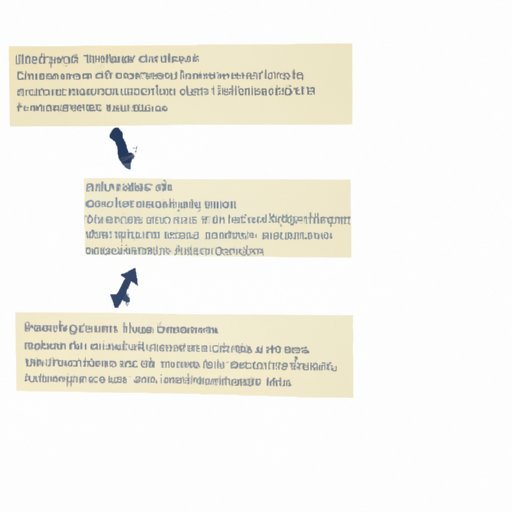Introduction
Criminology is the scientific study of crime and its causes, consequences, and control. It is an interdisciplinary field that draws from sociology, psychology, law, and other social sciences to explore criminal behavior and its causes. Social science, on the other hand, is the study of human behavior and society. This article will examine the relationship between criminology and social science, exploring the major connections between the two disciplines and their implications.

Examining the Role of Criminology as a Social Science
Criminology is a relatively new field, having only emerged in the late 19th century. Its emergence was largely due to the work of Italian criminologist Cesare Lombroso, who developed the concept of “positive criminology” which suggested that some criminals had biological and psychological traits that made them more prone to criminal behavior. Since then, criminology has grown to encompass a variety of topics related to crime, including its causes, consequences, and control.
At its core, criminology is concerned with understanding why people commit crimes and how those behaviors can be prevented or controlled. As such, it relies heavily on the theories and methods of the social sciences, particularly sociology and psychology. By studying the social factors that influence criminal behavior, criminologists are able to develop effective strategies for preventing and reducing crime.

Exploring the Intersection of Criminology and Social Science
The intersection of criminology and social science is complex and multi-faceted. On one hand, criminology is firmly rooted in the social sciences, drawing heavily from sociology, psychology, and other related fields. On the other hand, criminology has its own distinct set of theories and methods that set it apart from the social sciences.
In terms of their relationship, criminology and social science are closely intertwined. Criminologists rely on the theories and methods of the social sciences to study and understand criminal behavior. Likewise, social scientists use criminological data to inform their research and better understand the role of social factors in crime.
One example of this intersection is the use of crime statistics to analyze patterns of criminal behavior. Crime statisticians use data from police reports, court records, and surveys to identify trends in crime, which can then be used to inform public policy decisions. Similarly, sociologists use crime statistics to study the social conditions that lead to criminal behavior and to develop strategies for preventing and controlling crime.
Investigating the Connections between Criminology and Social Science
Although criminology and social science are closely linked, they are also distinct disciplines with different approaches and goals. Criminology is primarily concerned with understanding why people commit crimes and how those behaviors can be prevented or controlled. Social science, on the other hand, is focused on understanding human behavior and society more broadly.
Despite their differences, there are numerous benefits to combining criminology and social science. For example, by combining data from both disciplines, researchers can gain a more comprehensive view of crime and its causes. Similarly, by using criminological methods to analyze social phenomena, researchers can gain insights into the ways in which social factors influence criminal behavior.

Analyzing the Impact of Criminology on Social Science
The impact of criminology on social science is far-reaching. Criminology has helped to inform our understanding of crime and its causes, while also providing valuable insights into the social conditions that contribute to criminal behavior. In addition, criminology has enabled social scientists to develop more effective strategies for preventing and controlling crime.
However, criminology has also had some negative impacts on social science. For example, some criminological theories have been criticized for being overly reductionist, oversimplifying complex social phenomena. In addition, some criminological theories have been accused of perpetuating stereotypes about certain groups of people, leading to discrimination and bias.
Comparing and Contrasting Criminology and Social Science
Criminology and social science are closely related but distinct disciplines. While criminology is primarily concerned with understanding crime and its causes, social science is focused on understanding human behavior and society more broadly. Despite their differences, the two disciplines are closely intertwined, with criminology relying heavily on the theories and methods of the social sciences and social scientists using criminological data to inform their research.
Overall, criminology and social science have both positive and negative impacts on each other. Criminology has enabled social scientists to gain a better understanding of crime and its causes, while social science has provided criminologists with valuable insights into the social conditions that contribute to criminal behavior. However, criminology has also been criticized for being overly reductionist and for perpetuating stereotypes about certain groups of people.
Conclusion
In conclusion, criminology is firmly rooted in the social sciences and relies heavily on the theories and methods of the social sciences to study and understand criminal behavior. At the same time, criminology has its own distinct set of theories and methods that set it apart from the social sciences. The intersection of criminology and social science is complex and multi-faceted, with both disciplines having positive and negative impacts on each other.
To further investigate the relationship between criminology and social science, future research should focus on the ways in which the two disciplines interact and inform each other. Additionally, research should explore the implications of this intersection for public policy and criminal justice reform.
(Note: Is this article not meeting your expectations? Do you have knowledge or insights to share? Unlock new opportunities and expand your reach by joining our authors team. Click Registration to join us and share your expertise with our readers.)
